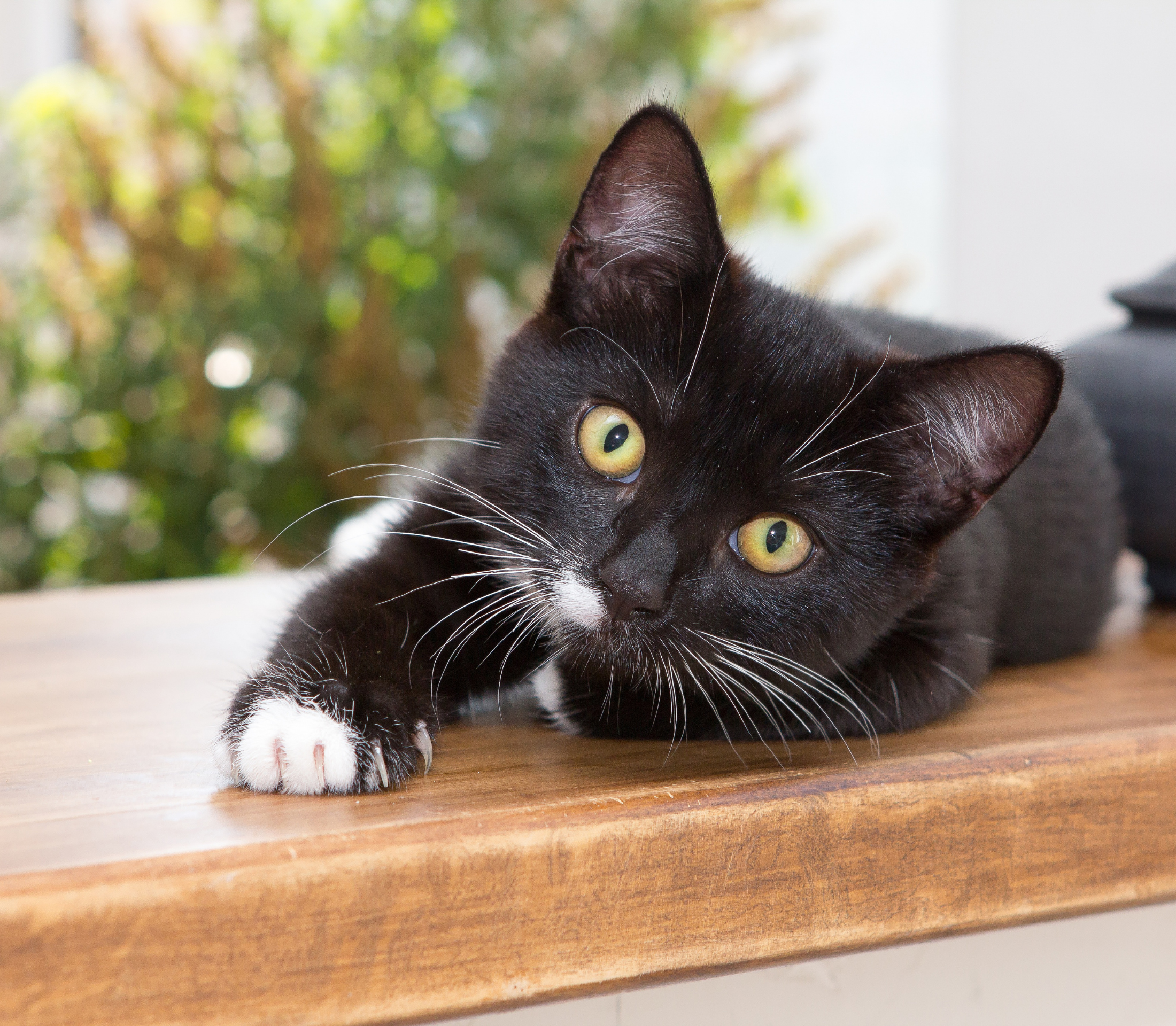Cats do a really good job at hiding that they’re sick or injured. The same goes for when your cat is stressed. Like people, stress isn’t good for cats and chronic stress can even suppress your Kitty’s immune system response, leaving her at risk for a wide range of illnesses. It may take a little detective work to know if your cat is stressed, but it can be done. Read on as a veterinarian lists some common signs of stress in cats.
While cats are known for their cleanliness and grooming habits, your cat may be feeling stressed if she grooms excessively. This is especially the case if she’s licking certain areas, such as her belly or legs. And if she’s throwing up hairballs more than usual, this may be due to excessive grooming.
Of course, this behavior may point to another more serious health issue, so be sure to have Kitty checked out by a vet.
Marking their territory is something cats do to feel safe and secure. If Kitty starts to make a habit of relieving herself outside of the litter box, she may feel stressed. Keep in mind that other things can cause your cat to do this, such as a health issue or a litter box that isn’t kept clean enough. As a general rule, it’s always best to rule out medical problems beforehand so this is another instance where a vet visit is warranted.
Scratching behaviors are another way cats mark their territory. However, if Kitty starts scratching in areas that she normally wouldn’t, such as the walls or the furniture, she may be trying to alleviate feelings of stress or anxiety by self-soothing.
Just like when they’re sick, a cat may hide or withdraw to an area where she feels more secure when she’s feeling stressed. And if Kitty normally acts curious and playful, withdrawing is a definite, telltale sign that something’s wrong.
If your cat goes from being a cuddler to a furry ball of fury, stress may be the cause. This may take the form of sudden aggression towards you or other cats or dogs in the household.
Again, if you notice one or more of these behaviors in your cat, be sure to rule out health problems before assigning stress as the cause. If you have more questions or wish to schedule your cat for a checkup, please don’t hesitate to call us.
